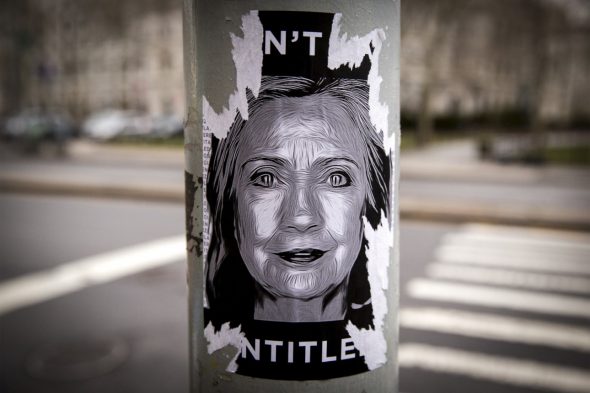Postmarxed writes:
Q: What did Hillary to do Honduras?
As secretary of state in 2009, she helped orchestrate a coup against a center-left president there, which resulted in a wave of political killings. LGBT activists and peasant activists in particular have been targeted but opposition politicians and journalists have been murdered by military police there too. This is still going on and was the main reason for the tens of thousands of central american children who were trying to enter the US unaccompanied in 2014.
Clinton’s behind-the-scenes opposition to bringing President Zelaya back after the coup was an terrible choice, and she deserves to be criticized harshly for it. It looks to me as if she prioritized business interests and political expediency over democracy. And doing this behind the scenes while publicly claiming to want Zelaya returned to office was hypocritical.
The consequences of the coup have been awful.
But I’m not aware of any evidence that Clinton “helped orchestrate” the coup. Rodolfo Pastor, who worked for President Zelaya, has written “the American government did not, as such, order or mount or stage the coup—it just danced along with its monsters.” Is there reason to think he was wrong?
Furthermore, it doesn’t seem likely that Zelaya could have been peacefully restored to the Presidency, even if Clinton had supported his position. Am I mistaken about that?
(I’m still planning to vote for Clinton. I wish there were a credible Presidential candidate running, who I liked better than Hillary Clinton on foreign policy. But there isn’t.)




My understanding of her role in the coup is the same as yours. And this person claiming otherwise is definitely wrong (or at least explaining VERY poorly) about political killings by the government being the main force driving Honduras to the USA in the last few years. The coup played a role in driving people out by giving the gangs and narcotraffickers an opportunity to strengthen their position inside the country, but most people are not fleeing government forces, they are fleeing the gangs.
“Clinton’s behind-the-scenes opposition to bringing President Zelaya back after the coup was an terrible choice, and she deserves to be criticized harshly for it. It looks to me as if she prioritized business interests and political expediency over democracy.”
To add to this (I agree that I have not seen evidence that she orchestrated the coup), the Obama administration, after a brief suspension, increased military aid to Honduras after the coup, and sent agents to help militarize the counternarcotics police forces. The Obama administration also consistently certified post-coup Honduras as compliant with human rights. Since Clinton was Secretary of State at the time, I assume she played a role in those decisions.
Although I doubt the writer views themself as an American exceptionalist or Americocentrist, this is a good example of a recurrent line of Americocentric thinking which is almost as dominant in anti-Imperialist dialogues as it is in the Imperialist dialogues they seek to counter – the idea that events in Third World countries are simply and directly the product of decisions made in Washington, and that actors in the Third World have no agency.
I don’t want to create a countermyth and claim that Washington isn’t closely involved in the internal affairs of Latin American states; it is and pretty much always has been. But not every malevolent development has its genesis in Washington DC or Langley. Often American interventions simply reinforce or smooth the way for changes whose genesis is purely indigenous. Honduran capitalists and landlords don’t need America to give them the idea of crushing democracy or smashing land reform; it’s in their own self interest to do so, and would be even if Washington was totally disinterested (or even if it was discouraging them, hard as this is to imagine)
What Tamme said.
The Mugabes and Chavezes of the world got a ton of mileage out of blaming their own terrible decisions on the boogeymen of the west. They claim credit when things work, powerlessness against the boogeyman when it doesn’t, and the anti-imperialist left will support them whatever happens.
It’s not a recipe for economic success and human rights, which you can see when you look at the most strident anti-American leaders. But it can be a good way to hold on to power and get the western “useful idiots” to rally to your side.
@LTL FTC: That’s not what I said. I am very sympathetic to leaders who denounce US imperialism – even those who are otherwise problematic or downright awful. Mao was a vicious dictator but he wasn’t wrong when he said US imperialism and capitalism had a heavy toll on China.
All I’m saying is, the USA didn’t put the idea of exploiting the poor into the heads of Venezuelan or Chinese landlords. It just helped them do it, and took a profit when they did.
Pingback: Let’s Not Pretend Benghazi Was The Only Objection To Clinton’s Libya Policy | Alas, a Blog
I lived in Guatemala at the time and followed the situation closely. I’ve also read the relevant Wikileaks. And I agree: she did not orchestrate the coup; she did dance with its monsters; but the alternative would have been “regime change” of some flavor, and if you think that would have gone off smoothly, I have a bridge.ly to sell you.
There is plenty to criticize about Clinton and Honduras, and the aftermath of the coup has gone horribly, but anyone who thinks that it’s a simple situation where you can just say “Clinton, Honduras, Berta Caceres, QED” is not worth a second listen.
(I think that pre-coup, the US did try to discourage it; and post-coup, it did revoke visas for those involved, which was a positive step. But mostly the US felt that once it had happened it should be smoothed over and forgotten as soon as possible. I don’t agree with this but I don’t pretend that I have a risk-free alternative.)